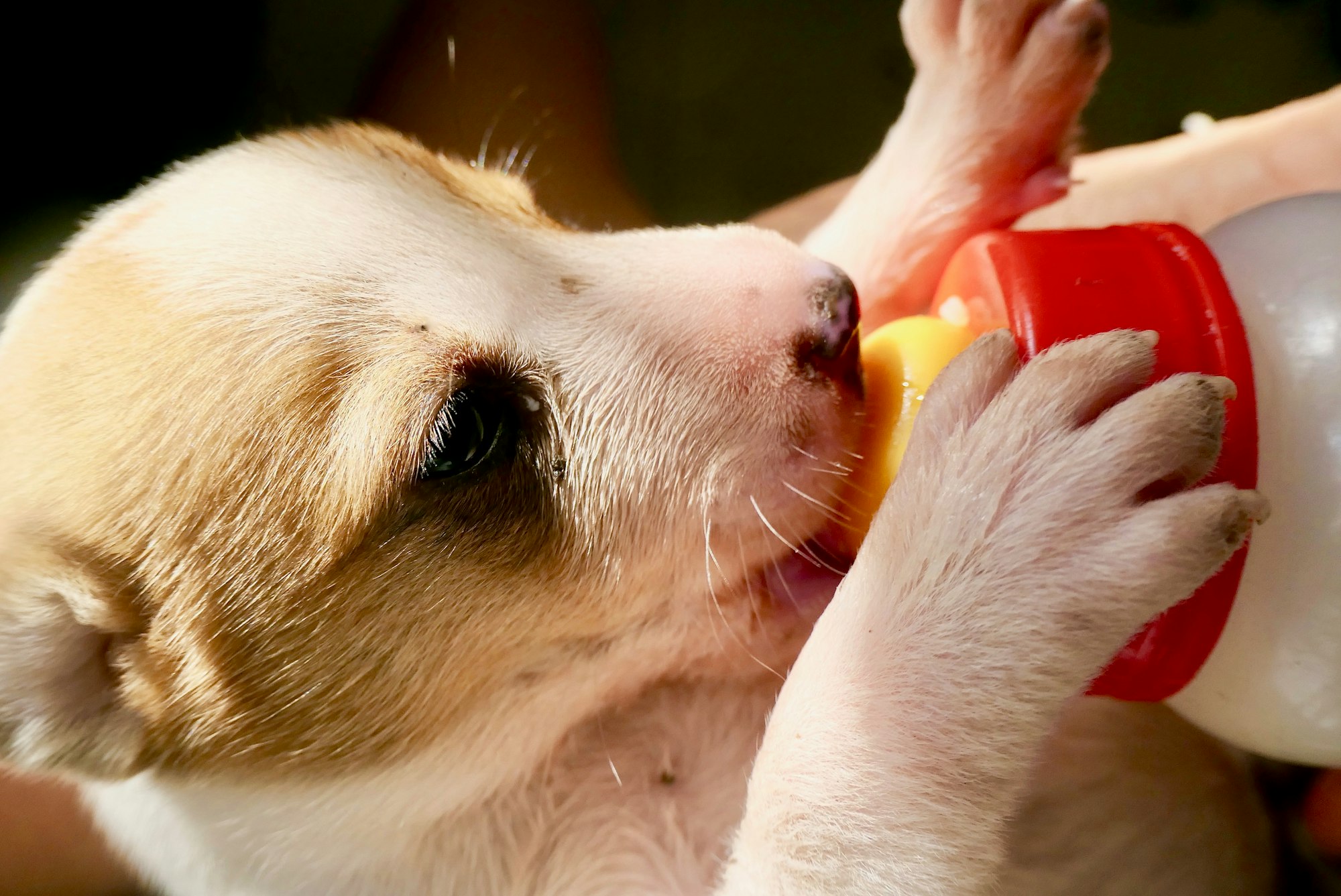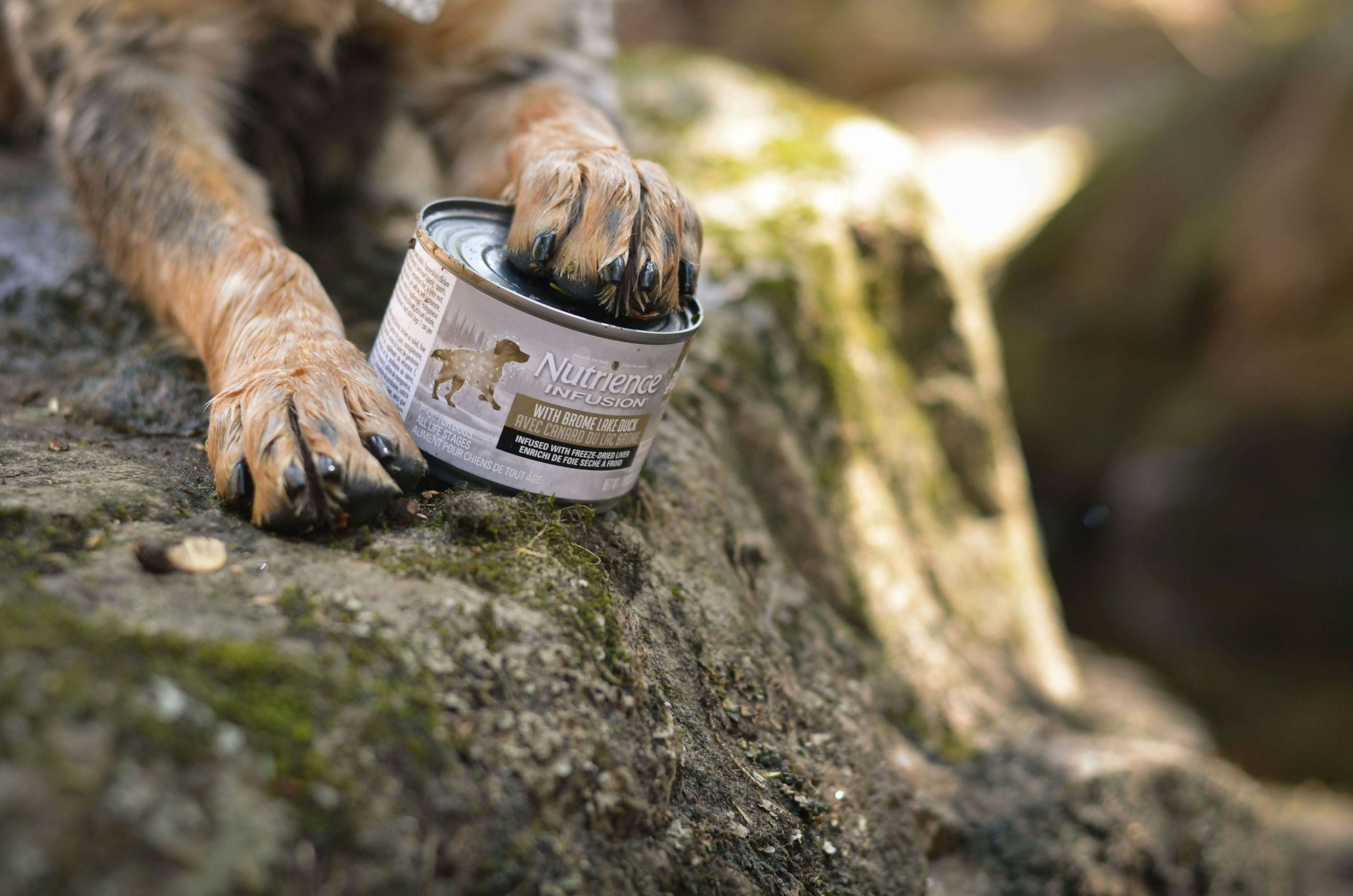Welcoming a new puppy into your home is an exciting experience, and ensuring their well-being starts with providing the right nutrition. In this guide, we'll explore the essential aspects of choosing the best food for your furry friend, addressing common concerns, and offering practical advice for a healthy diet.

Understanding Puppy Nutritional Needs
Bringing a new puppy into your home is like adding a bundle of joy and fur to your life. But with that cuteness comes the responsibility of providing the right nutrition for their growth and well-being. Let's dive into the crucial aspects of understanding your puppy's nutritional needs.
Specific Nutrients Essential for Growth
Puppies are like little sponges, soaking up the nutrients they need for proper growth. Protein, fats, vitamins, and minerals are the superheroes in their diet. Imagine these nutrients as building blocks, forming the foundation for a healthy and happy pup.
To support their rapid development, look for puppy food that boasts high-quality protein sources like chicken or beef. These proteins aid muscle and tissue development, ensuring your furry friend grows up strong and agile.
Age-Appropriate Diets for Puppies
Just like toddlers have different dietary needs than teenagers, puppies have unique requirements compared to adult dogs. Puppies need a diet specially formulated for their age to support their rapid growth and energy levels.
As your puppy matures, their nutritional needs evolve. Puppy food labeled with stages like "small breed," "medium breed," or "large breed" takes these differences into account. Tailoring the diet to your puppy's specific age ensures they get the right nutrients at the right time.
Choosing the Right Puppy Food
Now that we understand the essential nutrients, the next step is choosing the perfect puppy food. It's like selecting the right fuel for a high-performance car – the better the fuel, the smoother the ride.
Examining Ingredients in Puppy Food
The ingredients list on puppy food can look like a foreign language, but fear not, deciphering it is simpler than it seems. Look for named protein sources like "chicken" or "salmon" at the top of the list. These should be the stars of the show, not mysterious by-products.
Avoid foods with excessive fillers like corn or soy. Puppies need nutrient-dense meals, not empty calories. And keep an eye out for artificial additives – your puppy's palate doesn't need artificial flavors or colors to enjoy their meal.
Wet vs. Dry Food: Pros and Cons
Now, the age-old debate: wet or dry food? It's a bit like choosing between a juicy steak and a crunchy salad for yourself – personal preference matters, but nutrition shouldn't be compromised.
Wet food can be a tasty delight for your pup, providing extra hydration. On the flip side, dry kibble helps with dental health and can be more convenient. It's not about choosing one over the other but finding the right balance that suits both your puppy's taste buds and lifestyle.
Common Mistakes to Avoid
Even the most well-intentioned puppy parents can stumble on the path to providing the best nutrition. Let's sidestep some common pitfalls and set your pup up for a lifetime of health.
Overfeeding and Its Consequences
It's a common misconception that a pudgy puppy equals a happy one. Overfeeding can lead to a host of health issues, from obesity to joint problems. Follow the feeding guidelines on the puppy food packaging and monitor your puppy's weight regularly. A fit puppy is a healthy and happy puppy.
Ignoring Breed-Specific Requirements
Picture this: a Chihuahua and a Great Dane walk into a dog park. While their personalities might be equally grand, their nutritional needs are vastly different. Large breeds, small breeds, and everything in between have specific requirements. Ignoring these can lead to developmental issues. Consult your vet to tailor your pup's diet to their unique characteristics.
Transitioning to Solid Food
Ah, the puppy milestones – from tiny yelps to the first clumsy steps, and now, the transition to solid food. It's a pivotal moment in your furry friend's life, and navigating it smoothly ensures a happy, well-fed pup.
Gradual Introduction of Solid Food
Think of transitioning to solid food as introducing your puppy to the world of culinary delights. Start by mixing a small amount of wet or moistened puppy food with their usual milk or water. This helps them ease into the new textures and flavors.
As your pup gets the hang of it, gradually increase the ratio of solid food to liquid. It's like upgrading from training wheels to a two-wheeler – a bit wobbly at first, but soon they'll be cruising through their meals with confidence.
Signs of Successful Transition
How do you know if your puppy has aced the transition? Look for signs of enthusiasm during mealtimes, a decrease in dependence on liquid, and, of course, solid and healthy stools. Like proud parents at a graduation ceremony, witnessing these signs lets you know your pup is ready for the next chapter in their culinary journey.
Homemade vs. Commercial Puppy Food
Now that your pup is savoring the world of solid sustenance, the big question arises – homemade or commercial puppy food?

Pros and Cons of Homemade Diets
Homemade meals sound like a gourmet delight for your pup, right? Well, yes, but there's a catch. While you have more control over the ingredients, ensuring a balance of nutrients can be a bit like juggling – challenging. On the flip side, it's a personal touch that can cater to your puppy's unique tastes and dietary needs.
Ensuring Nutritional Balance in Homemade Meals
If you opt for the chef's hat and apron, maintaining nutritional balance becomes your culinary mission. Include a variety of proteins, grains, and veggies to mimic the diversity found in commercial puppy food. Think of it as crafting a culinary masterpiece – one that keeps your pup's tail wagging and their health in check.
Dealing with Allergies and Sensitivities
Allergies and sensitivities – not the most glamorous topics, but crucial for your pup's well-being. Let's delve into how to navigate these potential dietary landmines.
Identifying Allergic Reactions
Much like us, puppies can develop allergies to certain foods. Watch out for signs like itching, digestive issues, or changes in behavior. It's like playing detective – observe, note, and connect the dots to identify potential allergens.
Specialized Diets for Allergic Puppies
If your pup shows signs of being a little too sensitive to certain ingredients, fear not. Specialized diets designed for allergic pups are available. These diets eliminate common allergens, allowing your furry friend to indulge in meals without the drama of allergic reactions.
Feeding Schedule and Portions
Ah, the rhythm of a well-fed puppy – it's a symphony of joy, energy, and satisfied belly rubs. Let's talk about setting the stage for this canine culinary masterpiece.
Establishing a Consistent Feeding Routine
Imagine a world where breakfast, lunch, and dinner are the highlights of your day. That's the kind of world your puppy lives in, and establishing a consistent feeding routine is key. Pick a time that suits both your schedule and your pup's internal dinner bell, creating a sense of predictability that they'll come to cherish.
Whether it's twice or thrice a day, the key is consistency. Like clockwork, your pup will anticipate their next gastronomic adventure, making mealtimes a delightful ritual for both of you.
Adjusting Portions Based on Growth
Puppies grow faster than you can say "fetch," and their nutritional needs change with every growth spurt. Keep an eye on their weight and adjust portions accordingly. It's like tailoring a suit – as your pup grows, their meals should grow with them.
A healthy balance between the right portions and a consistent schedule ensures your pup is fueled up and ready for all the adventures that await. It's the secret sauce to a happy, healthy, and well-fed furry friend.
Puppy Treats: To Give or Not to Give
Treats – the magic wands of puppy training and a surefire way to win over those soulful puppy eyes. But should you give in to those pleading looks? Let's explore the world of puppy treats.
Importance of Moderation
Treats are like the sprinkles on the cupcake of life – delightful but best enjoyed in moderation. While treats are fantastic for training and bonding, overindulgence can lead to a pudgy pup with potential health issues.
Consider treats as special rewards, not a substitute for a balanced meal. Your pup may think they're getting away with a heist, but it's your responsibility to ensure those treats complement, not overshadow, their regular diet.
Healthy Homemade Puppy Treat Ideas
Now, if you're feeling a bit like a culinary maestro, why not whip up some homemade treats? Picture this: homemade biscuits with a dash of love and a sprinkle of canine joy. We'll share some creative and nutritious treat ideas that'll make your pup's tail wag with gusto.
Introducing Supplements
The supplement aisle – a treasure trove of promises for a healthier, happier pup. But before you dive in, let's unravel the mystery of introducing supplements to your pup's diet.
When and Why to Consider Supplements
Supplements can be like sidekicks, supporting your pup's health journey. But not all heroes wear capes, and not all puppies need supplements. Consider supplements when your pup's diet may lack certain nutrients or if they have specific health concerns. It's like adding a little extra armor to their nutritional arsenal.
Types of Supplements Suitable for Puppies
Navigating the supplement aisle can be like entering a maze, but fear not – we'll guide you through it. From omega-3 fatty acids for a shiny coat to joint supplements for the playful acrobatics, we'll explore the types of supplements suitable for your puppy's unique needs.
Monitoring Your Puppy's Weight
Keeping tabs on your puppy's weight is like having a roadmap to their health – it tells a story of growth, vitality, and potential concerns. Let's dive into the importance of being your pup's personal weight watcher.
Importance of Regular Weigh-Ins
Picture this: you step on the scale, and it gives you insights into your health journey. Your puppy deserves the same attention. Regular weigh-ins help track their growth and ensure they're on the right track. It's not about fitting into a doggy-sized pair of jeans, but about maintaining a healthy and balanced physique.
Adjusting Diet Based on Weight Changes
Weight fluctuations can be as telling as a wagging tail. If your pup is shedding pounds or gaining a little too much fluff, it's time to adjust their diet. Think of it as tailoring a diet plan to fit – not too loose, not too tight, but just right for your growing companion.
Tips for Picky Eaters
Ah, the conundrum of the picky eater – a challenge that many pup parents face. Convincing your furball to savor every bite can be a bit like negotiating a treaty. Fear not, for we've gathered some tips to turn your discerning pup into a culinary enthusiast.
Creative Ways to Enhance Palatability
Imagine turning a regular meal into a gourmet experience for your pup. Introducing variety, warming up their food, or even adding a dash of broth can make meals more enticing. It's like adding spice to your life – or, in this case, to your pup's bowl.
Seeking Veterinary Advice for Persistent Issues
If your pup remains the Gandalf of pickiness, it's time to consult the wizard of doggy health – your veterinarian. Persistent picky eating could signal underlying health issues or dietary needs that require professional guidance. Your vet is the wise sage who can unravel the mystery and ensure your pup's palate is both happy and healthy.
Hydration Matters
Water – the unsung hero of puppy nutrition. Hydration is not just about slurping from a bowl; it's about sustaining life and keeping your pup's engine running smoothly.
Ensuring an Adequate Water Supply
Imagine a day without water – it's unfathomable. The same goes for your pup. Ensure they have a constant supply of clean water. It's the elixir of life that keeps them hydrated and supports various bodily functions. Think of it as their personal hydration station.
Signs of Dehydration in Puppies
Detecting dehydration is a bit like reading subtle cues. If your pup seems lethargic, has sticky gums, or exhibits reduced skin elasticity, it's time to up the water game. Hydration matters, and being attuned to these signs ensures your pup stays cool, refreshed, and ready for play.
Common Myths About Puppy Nutrition
Ah, the myths and legends that surround puppy nutrition – like fables passed down through generations. Let's debunk some common misconceptions and separate fact from fiction.
Dispelling Misconceptions
They say knowledge is power, and when it comes to puppy nutrition, it's no different. From the belief that all homemade meals are superior to the notion that puppies thrive on a raw diet, we'll unravel the myths that may lead you astray. Consider this your guide through the labyrinth of nutritional misinformation.
Consulting a Veterinarian for Accurate Information
In a world filled with information, seeking the guidance of a veterinarian is like finding a reliable compass. Your vet is the source of accurate, personalized information that caters to your pup's unique needs. Trust their expertise to navigate the sea of puppy nutrition myths.

Conclusion
In conclusion, feeding your puppy involves a thoughtful blend of science and love. By understanding your puppy's unique needs, choosing the right food, and embracing a holistic approach to nutrition, you're laying the foundation for a healthy, happy life together.
FAQs
- Q: How often should I feed my puppy?
- A: Puppies typically require three to four small meals a day, adjusting based on age and breed.
- Q: Can I give my puppy human food as treats?
- A: While some human foods are safe, it's crucial to avoid those toxic to dogs. Opt for dog-friendly treats to ensure their safety.
- Q: Should I stick to one brand of puppy food?
- A: It's advisable to choose a high-quality brand, but occasional changes may benefit your puppy. Consult your vet for personalized advice.
- Q: How do I know if my puppy has a food allergy?
- A: Watch for signs like itching, gastrointestinal issues, or changes in behavior. If in doubt, consult your veterinarian.
- Q: Is it necessary to give my puppy supplements?
- A: Not all puppies require supplements. Consult your vet to determine if your puppy has specific nutritional needs.